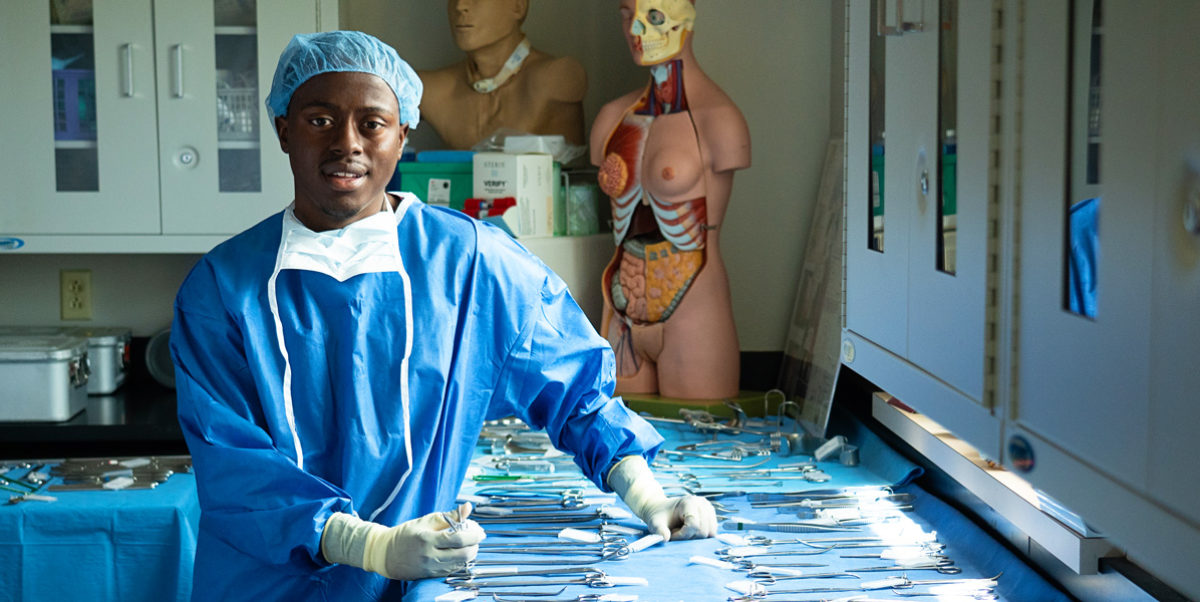Surgical Technology

AAS Associate Program
Division of Allied Health and Professions | Surgical Technology
Surgical Technologists play a crucial role on surgical teams, working closely with surgeons, registered nurses, and anesthesiologists to provide the best possible care for the patient undergoing a surgical intervention. The primary role of the surgical technologist, or “scrub tech,” as they’re often called, is to prepare a sterile field and pass instruments to the surgeon during the surgical procedure. Surgical Technologists should possess a stable temperament, manual dexterity, physical stamina and the ability to integrate and prioritize a variety of activities.
The surgical technologist’s professional role and concepts relating to patient need, surgical conditions, asepsis, surgical routines, human behavior, communication, and caring provide the framework for Trocaire’s AAS in Surgical Technology program. As the student progresses through the curriculum, classroom theory is applied to clinical practice in the operating room setting. A mix of laboratory practice and hospital operating room experiences during the first year introduces the student to the operating room environment, and the second year emphasizes clinical experience in a broad range of surgical specialties and settings to prepare the student for future practice as a surgical technologist.
AAS: Surgical Technology
Program Format
Time of Program: Day, Evening
Mode of Delivery: On-site/Seated
Program Director: Leah Gilmer, CST, BS
Email: Gilmerl@trocaire.edu

